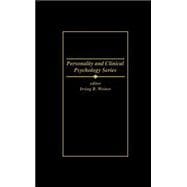
What is included with this book?
|
xiii | ||||
| Preface | xv | ||||
| I. CONCEPTUAL CONTRIBUTIONS | 1 | (136) | |||
|
3 | (22) | |||
|
|||||
|
|||||
|
|||||
|
25 | (30) | |||
|
|||||
|
|||||
|
55 | (32) | |||
|
|||||
|
|||||
|
|||||
|
87 | (24) | |||
|
|||||
|
|||||
|
|||||
|
|||||
|
111 | (26) | |||
|
|||||
|
|||||
| II. CLINICAL ISSUES AND APPLICATIONS | 137 | (148) | |||
|
139 | (36) | |||
|
|||||
|
|||||
|
175 | (28) | |||
|
|||||
|
203 | (28) | |||
|
|||||
|
|||||
|
|||||
|
231 | (20) | |||
|
|||||
|
|||||
|
251 | (18) | |||
|
|||||
|
|||||
|
269 | (16) | |||
|
|||||
|
|||||
| III. SPECIAL APPLICATIONS | 285 | (120) | |||
|
287 | (26) | |||
|
|||||
|
313 | (20) | |||
|
|||||
|
|||||
|
|||||
|
|||||
|
333 | (18) | |||
|
|||||
|
|||||
|
351 | (18) | |||
|
|||||
|
|||||
|
|||||
|
369 | (16) | |||
|
|||||
|
|||||
|
385 | (20) | |||
|
|||||
|
|||||
|
|||||
| Epilogue | 405 | (4) | |||
|
|||||
| Appendix A: PCL--R Clinical and Forensic Interview Schedule | 409 | (14) | |||
|
|||||
| Appendix B: A Forensic Psychological Evaluation | 423 | (16) | |||
|
|||||
| Appendix C: The Use of the Psychopathy Checklist-Revised (PCL--R) and Rorschach in Treatment Planning With Antisocial Personality Disordered Patients | 439 | (16) | |||
|
|||||
| Appendix D: Selected Psychopathy Bibliography by Subject | 455 | (28) | |||
|
|||||
|
|||||
| Author Index | 483 | (16) | |||
| Subject Index | 499 |
The New copy of this book will include any supplemental materials advertised. Please check the title of the book to determine if it should include any access cards, study guides, lab manuals, CDs, etc.
The Used, Rental and eBook copies of this book are not guaranteed to include any supplemental materials. Typically, only the book itself is included. This is true even if the title states it includes any access cards, study guides, lab manuals, CDs, etc.